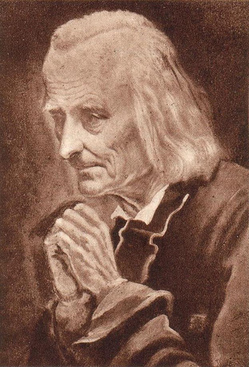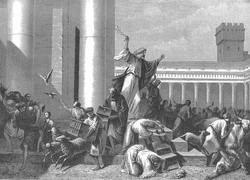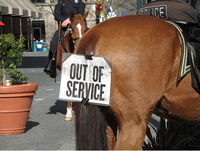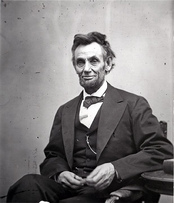An article by Father Julián Carrón, President of the Fraternity of Communion and Liberation, has been published by the Italian daily, Avvenire. The article is titled “A Challenging Mercy” and is related to the letter Pope Benedict addressed to all Bishops after the polemics about the lifting of the excommunication of bishops in the Society of St. Pius X. I recommend the article.
Pope announces Year of St John Mary Vianney 2009-2010
 On the occasion of the 150th anniversary of the death of the Saint Curé of Ars, John Mary Vianney, His Holiness announced this morning that from
On the occasion of the 150th anniversary of the death of the Saint Curé of Ars, John Mary Vianney, His Holiness announced this morning that from
During this Jubilee Year Benedict XVI proclaimed Saint John Mary Vianney “Patron of all priests of the world.” He will publish a Directory for Confessors and Spiritual Directors together with a collection of writings of the Supreme Pontiff concerning the essential themes of the life and mission of the priesthood today.
The Congregation for the Clergy together with the diocesan ordinaries and superiors of religious institutes will collaborate in promoting and coordinating the various spiritual and pastoral initiatives that concern the importance of the life and mission of the spriest in the Church and in contemporary society, the necessity of competent permanent formation of priests and seminarians.
The Pope will opens the special Year on 19 June with Vespers in St. Peter’s Basilica where the relics of the saintly ‘Cure of Ars’ will be brought by Bishop Guy Bagnard of Belley-Ars,
A video clip of the announcement from H2O News.
Zeal for your house will consume me: 3rd Sunday of Lent 2009
The gospel proclaimed at Mass today (if you are not doing the 3rd scrutiny) comes from
 -Do we meet the Lord and others in humility?
-Do we meet the Lord and others in humility?
-Are we faithful to the Lord as are able?
-Do we take time to know what the Lord is saying through the teaching of the Church, his sacrament on earth?
-When someone has a problem in understanding the faith, as we’ve seen recently in Connecticut S.B. 1098 and now with S.B. 899, do we take the time to understand the matter, look for the correct teaching and teach what the Church offers us for the good of our souls and for happiness?
-Are we deaf to the physical and spiritual, culture and social needs of our brothers and sisters?
-In watching the greed of Bernie Madoff unfold, can we might have to overturn the tables of our own greed?
-What are the sacrileges that we cling to so mightily, blasphemies with names like, hate, indifference, unkindness, gossip, unreasonableness, and inertia?
-Do we know what’s happening in our world well-enough to make changes where we stand? Would we be able to stop war, crime, violence, and abuse?
The house of God Jesus cleans is not merely the
If we really believe the Lord’s promises are true, can we rededicate ourselves to God today and accept the fact that the blood of Lamb -Jesus Christ–really saves us and urges us onward?
The Lord is not merely asking us to rearrange the furniture in our lives which may feel a bit comfortable TEMPORARILY, He’s asking us to change the color of our room, the bedding, the artwork, and the flooring we stand on PERMANENTLY. But the permanence is only possible if we ask for the grace to follow the Lord. Zeal for God’s house will consume me.
Divine Intimacy
We know by experience that we have not sufficient strength in ourselves to bring to a successful completion our chief Lenten duty, which is to die fully to sin in order to live fully in the risen Christ. But Christ himself, before leaving his own, prayed to his Father to preserve them from evil and from the evil one (John
He had taught them to ask: lead us not into temptation, but deliver us from evil (Matthew
Fr. Gabriel of St. Mary Magdalen, OCD
Divine Intimacy
CT.gov: Religion and Politics
Tom Hoopes at the National Catholic Register opened my eyes this morning with a brief article on the State of Connecticut’s intrusion into matters of faith, doctrine and Church.
Last week had SB 1098; now we have to contend with SB 899. This new bill being proposed is wide reaching and very intrusive and just plain wrong, not just in matters of faith but culture, government and parenting.
The problem is education: the lack of it retards greater freedom and happiness for which we are made for by God: beatitude.
What is Ignatian Spirituality?
Ignatian spirituality is a method of prayer bequeathed to the Church by the 16th century Basque saint, Ignatius of Loyola. It is a spirituality grounded in the fundamental idea that God labors for us, that He is active in the daily life of man and woman. This spirituality is rooted in the Gospel and in the heart of the Catholic Church. This is a radical theological concept because, for instance, Muslims think it’s heretical to think that God became man (that the Incarnation is a fact) and that we could (a) know the will of God; (b) that we could have a personal relationship with Him (in Jesus & the Holy Spirit) and (c) that God is always present to us. So, what does Ignatius give us? He wants “above all…you to increase the pure love of Jesus Christ in the desire of His glory and the salvation of the souls which He has redeemed.” This is a spirituality that trains us to “find God in all things.”
Ignatius wrote the Spiritual Exercises as a lay man with the singular intention of drawing others to Christ. The Exercises are guideposts, that is, notes for a spiritual director to use in orienting a retreatant on his or her retreat and are not meant to be read as one would read a novel. As other spiritualities are, the Ignatian way is unique for its constant attention to one’s intimate relationship with Jesus and discerning the will of God in each person’s life. It is not merely a technique for making good decisions; for that you can seek the counsel of your favorite philosopher; it is a personal way of living graces given to us God. You may say that Ignatian spirituality is way of acknowledging and living the happiness that God’s wills for each of us. I find Ignatius’ method to be a practical spirituality that’s particularly suited to the needs and desires of Christians today.
Ignatian spirituality sees God as actively involved in the world and intimately involved with us in every moment and place. We therefore say that God is in the center of reality, in the mess of history redeeming humanity. We can say with Saint Ignatius that “God’s love is poured forth lavishly like a fountain spilling forth its waters into an unending stream.”Withdrawing from the world into a quiet place in order to find God is understandable but withdrawing from the world is not particularly “Ignatian” for the long haul. That is why Ignatius spoke of those who follow the Exercises as living a life contemplation in action. It is perfectly acceptable to spend an 8-day retreat in the quiet of a monastery or a secluded retreat house. Nevertheless, the virtue of this type spirituality is that is God encountered everywhere –in our work and our relationships, in our family and friends, in our sorrows and joys, in the sublime beauty of nature and in the mundane details of our daily lives. One caution: our work, relationships, family, friends and any other possible detail doesn’t replace our relationship with God,nor does it replace the sacraments, Mass, personal prayer and sacrifice. That is, you can’t hold that “my work is my prayer” and think you are actually following an authentic spirituality. But it is true that God is present to us and we are present to God through all these things (the daily grind of our lives) because of the Incarnation.
From history we know that Loyola is the founder, under the guidance of the Holy Spirit, of the Society of Jesus, a religious order of priests and brothers called to preach Jesus Christ in communion with the Pope under the standard of the Cross. Since the 1960s a Jesuit defined himself as a sinner redeemed (loved) by Christ. The motto of the Jesuits is Ad maiorem Dei gloriam (To the greater glory of God) which is based on the Benedictine motto of Ut in omnibus glorificetur Deus (That in all things God may be glorified, 1 Peter 4:11): hence, the work of Ignatian spirituality is a life spent glorifying God using everything God has given us in order to live in communion with Him.
Benedict’s interpretative lens of Vatican II, according to Edward Oakes
Jesuit Father Edward T. Oakes, a Mundelein Seminary Theology professor explains Pope Benedict’s VERY clear reasons for putting to bed the ex communications of the SSPX bishops while delving into the acceptance of (or not) “Vatican II theology.” What Vatican II said is a bone of contention of many, for a very long time….
You’ve got to read the article, Benedict’s Vatican II Hermeneutic in First Things!
The Beauty of the Church
From outside she [the Church] looks like an establishment, like one organization among others. From within she is the medium, one might almost say the magic, whereby God is able to be all in all within his creation, without suppressing the creature he has made free.
(Hans Urs Von Balthasar, In the Fullness of Faith)
Enticing things to grow with nature to help (at the abbey)
Spreading…makes life more interesting, or a least it makes the flowers grow. Yesterday Gail, the abbot’s administrative assistant, brought me a gift, a token of appreciation. Well, I requested it so it’s technically not a gift. Gail brought me a feed bag of mature horse manure from her own horses; it’s mature manure I am assured. I got a phone call from Brother Anthony saying that I had a bag of … manure on the front steps. Not wanting to offend guests I quickly moved the bag to the Saint Francis garden.
Before the night rain fell and after vespers but before the total loss of daylight, I made a mad-dash to the garden to spread the “garden tea.” I couldn’t help but remember -and laughing riotously– at what a senior Jesuit friend of mine said of Jesuits and horse manure: if you keep Jesuits together they stink; if you spread them around, they fertilize. I think you get the point. Besides hoping for the cooperative intercession of Saint Francis, I am expecting the manure to heighten the garden’s capacities.
Much of last week I had my friend Brother Michael visiting me. It was nice to have him here. As it is said, “Hospes venit, Christus venit.” A stranger comes, Christ comes. This saying is part of the Rule of Saint Benedict and we often find it on signs at Benedictine monasteries: “Let every stranger be received as Christ himself.” Brother Michael is not a stranger to me but he was to members of the community for a very short time. The others we edified by his presence and I got a chance to share life with a friend.
Last Saturday we had the privilege of welcoming back to the Abbey and the College Father Dwight Longenecker, an Oblate of Saint Benedict, to speak to interested parties on Saint Thérèse of Lisieux and her “little way” as a fitting approach to living Lent. His blog, Standing on My Head is a popular read.
These last days have been interesting and boring at the same time. More painting is taking place. This time we’re doing the Compline room, the place where Night Prayer is prayed; it badly needed some fresh paint on the walls. We also did some garden work in a neglected area of the monastery gardens and we did some odds-and-ends.
One of the postulants decided to leave the abbey thus ending his discernment in following a monastic vocation. Mary, Help of Christians – Belmont Abbey is much the poorer. Andrew is 24 and a recent grad of Belmont Abbey College and Saint John’s in Annapolis. We wish him well and many blessings.
My fun reading this week is a book on the Solesmes and Dom Gueranger: 1805-1875 (Paraclete Press, 1996).
 Life in a monastery is fun. Oh, yea, the flowering trees are working hard to push out the color!!!! AND now I need more manure.
Life in a monastery is fun. Oh, yea, the flowering trees are working hard to push out the color!!!! AND now I need more manure.
Lincoln, a drama
 A new drama about the life of Abraham Lincoln and the role that his fourteen years in Spencer County, Indiana, played is being planned for the bicentennial of his birth in 2009.
A new drama about the life of Abraham Lincoln and the role that his fourteen years in Spencer County, Indiana, played is being planned for the bicentennial of his birth in 2009.
